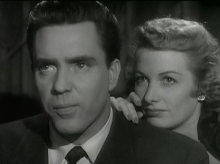Some notes on Voddie's message about Matt. 7:7-14. Up to this point, the messages of the Beatitudes have focused on our role as Kingdom citizens, followed by the six antithesis ("you've hear it said... I say..."), and then Jesus addressed practical issues (prayer, fasting, giving, etc.). In Ch. 7, the sermon on the mount comes to a close. One of the things that pastor pointed out was that this message wasn't just aimed at "heathens and pagans", but rather it's about believers looking at the Pharisee's, the most righteous folks there were, and being directed to EXCEED their righteousness. And it's impossible to exceed that righteousness outside of the work of Christ alone.
v. 13-14 speak of the straight and narrow paths (Jer. 21:8 - "The way of life, the way of death"). Voddie spoke about the Christian life, and how it must be entered into intentionally. He addressed the more nominal approach to Christianity, that when asked "are you a Christian?", tend to reply with "I go to church", "I was raised a Christian", or "I've been a Christian all my life" (the later of which goes against the viewpoint of entering the Christian life intentionally, but rather makes it sound like an accidental pursuit.) Christianity is not an accidental endeavor, but instead is founded on repentance and faith (Mark 1 - "repent and believe"). To state that "I've been a believer all my life" is a theological impossibility.
Voddie pointed out that we all, by default, find the "wide gate" (the doctrine of original sin). We need to find the narrow gate. We seek it and petition God, with faith and repentance. So many churches this day teach an easy salvation, with belief without repentance, or acknowledgement of the burden of sin. The world wants to believe in Jesus "meek and mild", not the final judge who will convict us based upon our sins. We all deserve the death on the cross.
The expectation, as well, as that we will experience persecution as part of our walk. Modern teaching ("Best Life Yet" stuff) teaches that you should believe to escape persecution (in other words, they have the system backwards.) We learn from the Word that the one who endures to the end will be saved, not the one who just says "the sinner's prayer". We are encouraged to endure patiently.
Pastor also taught that our sin nature makes it difficult to find the narrow gate, as it's surrounded by the wide path. But our companions are few on this road. Language on the broad road, about the narrow road, is that the narrow-road travelers are "over committed", or "they're taking it too far." Responses like "Do you think we're wrong when there are THOUSANDS at our church, or because God is blessing our church?" This was a really good point, as I've struggled with how the local UM church can be so enormous, while being so shallow in it's teaching. The broad road is convenient, easy Christianity. Church on Sunday then go home and live as you like for a week.
We are exhorted to watch ourselves, and test ourselves. Jesus is the author and finished of our faith, and we should never adopt an attitude of, as Pastor said, "Thanks for dying, Jesus, but I did the rest myself." Endurance is evidence of our salvation - it's not a result of sheer credit to our own efforts. Salvation is about more than a "sinners prayer" on a specific date and time written in a Bible somewhere. It's about repentance, because you fully know and understand that you are a sinner deserving eternal wrath (and not just repentance in thinking that we are comparably less-wicked than the "Hitlers" of the world). Repentance and faith in the person and work of Christ alone.
Monday, August 10, 2009
Subscribe to:
Post Comments (Atom)














No comments:
Post a Comment